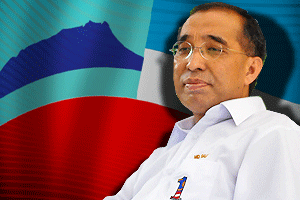Pakatan Rakyat’s game of confuse the public
Salleh Said Keruak
In 1999, Anwar Ibrahim’s supporters started a new party called Parti Keadilan Nasional (PKN). A few months later, this new party formed a loose coalition with DAP, PAS and PRM called Barisan Alternatif.
Not long after that, Barisan Alternatif collapsed when PAS passed the amendments to the Sharia Bill in the Terengganu State Assembly to include the criminal laws of Hudud.
In the 2004 general election, PKR (a so-called merger between PKN and PRM), DAP and PAS entered into an electoral pact to ensure that they avoided three-corner fights. In some constituencies this agreement broke down when ‘independent’ candidates who defied their party’s instructions still contested.
I said “a so-called merger between PKN and PRM” because it was not actually a merger but more that some PRM members crossed over to join PKN and PKN then changed its name to PKR.
Then, in 2008, they formed a new loose coalition called Pakatan Rakyat. Unlike Barisan Nasional, however, Pakatan Rakyat is not a registered party. It is just an understanding or pact.
And that is why we are seeing so much squabbles and disagreements in Pakatan Rakyat. Their pact is not legally binding so each party looks after its own interests first and the interest of the loose coalition second.
The second most glaring problem facing Pakatan Rakyat is its reluctance to form a Shadow Cabinet like Barisan Alternatif did in 1999. If they could do it in 1999 why can’t they do it now? In most countries, England included, those countries that adopt the British Westminster system of Parliament have Shadow Cabinets.
However, while Pakatan Rakyat does not have a Shadow Cabinet, it does have a Shadow Prime Minister, Anwar Ibrahim, who is officially the Opposition Leader in Parliament.


